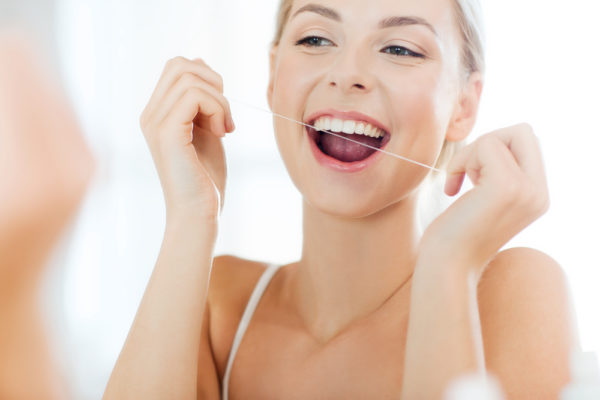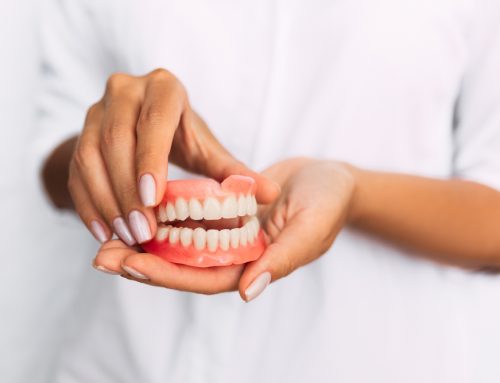Maintaining good oral hygiene is crucial for the health of your teeth and gums. Proper oral hygiene practices at home can help prevent tooth decay and gum disease, as well as keep your breath fresh and your smile bright. In this article, we will provide five tips for practicing proper oral hygiene at home to help you maintain optimal oral health.
Brush your teeth twice a day
Brushing your teeth at least twice a day is an important part of maintaining good oral hygiene. It is recommended to brush your teeth in the morning and before bed. When brushing, use a fluoride toothpaste and a soft-bristled toothbrush. Be sure to brush for at least two minutes each time, and make sure to brush all surfaces of your teeth, including the fronts, backs, and tops.
It is important to use a fluoride toothpaste because fluoride helps to strengthen the enamel of your teeth, making them more resistant to decay. It is also important to use a soft-bristled toothbrush because hard bristles can damage the enamel of your teeth and irritate your gums. If you have difficulty brushing for two minutes, consider setting a timer or using an electric toothbrush, which can often have a built-in timer.

Floss daily
Flossing is an important part of maintaining good oral hygiene. It helps remove plaque and food particles from between your teeth and along the gumline, areas that a toothbrush cannot reach. It is important to floss at least once a day, ideally before bed. When flossing, be sure to gently glide the floss between your teeth, using a back and forth motion to remove plaque and food particles.
If you have difficulty flossing with traditional floss, consider using a floss pick or an interdental brush. These tools can make flossing easier and more effective. It is also important to use a clean section of floss for each tooth to ensure that you are removing as much plaque and food particles as possible.
Use mouthwash
Mouthwash can be an effective way to kill bacteria and freshen your breath. It can also help loosen plaque and food particles, making it easier to remove when you brush and floss. There are many different types of mouthwashes available, including ones that are specifically formulated to help prevent gum disease.
It is important to use mouthwash as directed, typically by rinsing with a mouthful of mouthwash for 30 seconds to one minute and then spitting it out. Do not swallow mouthwash, as it can contain ingredients that are harmful if ingested. If you have a history of mouth sores or sensitivity to mouthwash, be sure to speak with your dentist or healthcare provider before using mouthwash.
Replace your toothbrush regularly
It is important to replace your toothbrush every three to four months, or sooner if the bristles become frayed. A worn toothbrush will not effectively clean your teeth and can harbor bacteria. When shopping for a new toothbrush, look for one with soft bristles and a small head, as these are gentle on the teeth and gums.
If you use an electric toothbrush, be sure to replace the brush head every three to four months as well. It is also important to store your toothbrush properly, either by standing it upright in a cup or toothbrush holder or by laying it flat to dry. Storing your toothbrush upright can help prevent the bristles from becoming misshapen, and storing it flat can help it dry more effectively.
Visit the dentist regularly
Regular dental check-ups and cleanings are an important part of maintaining good oral hygiene. During a dental exam, your dentist will clean your teeth, removing plaque and tartar that has built up. They will also check for any potential problems, such as tooth decay or gum disease, and provide treatment as needed. It is generally recommended to visit the dentist every six months for a routine cleaning and exam.
If you are experiencing any dental issues, such as tooth pain, sensitivity, or bleeding gums, it is important to see your dentist as soon as possible. These issues can be signs of underlying problems that need to be addressed. Your dentist can also provide you with personalized recommendations for maintaining good oral hygiene at home based on your specific needs and circumstances.
In addition to regular dental visits, it is also important to maintain a healthy diet and limit your intake of sugary and acidic foods and drinks. These types of foods and drinks can contribute to tooth decay and gum disease. It is also important to quit smoking or using tobacco products, as they can have negative effects on your oral health.
By following these simple tips, you can help keep your teeth and gums healthy and maintain good oral hygiene at home. Remember to brush, floss, use mouthwash, replace your toothbrush regularly, and visit the dentist regularly to ensure optimal oral health. If you have any questions or concerns about your oral hygiene routine, be sure to speak with your dentist or healthcare provider. They can provide you with guidance and support to help you maintain good oral health.



